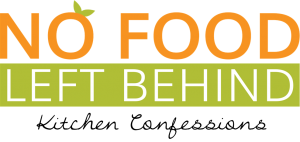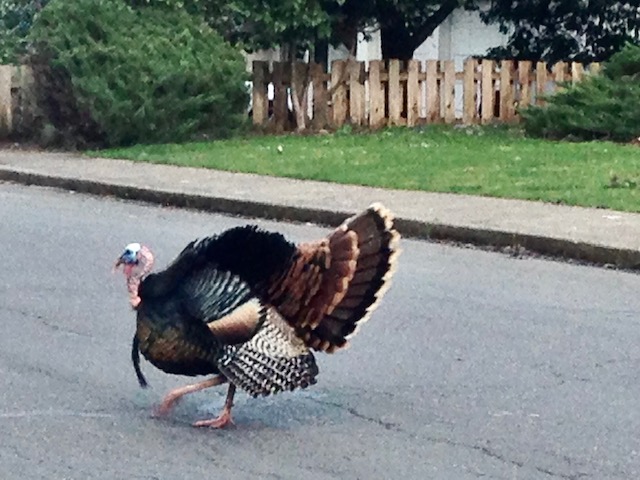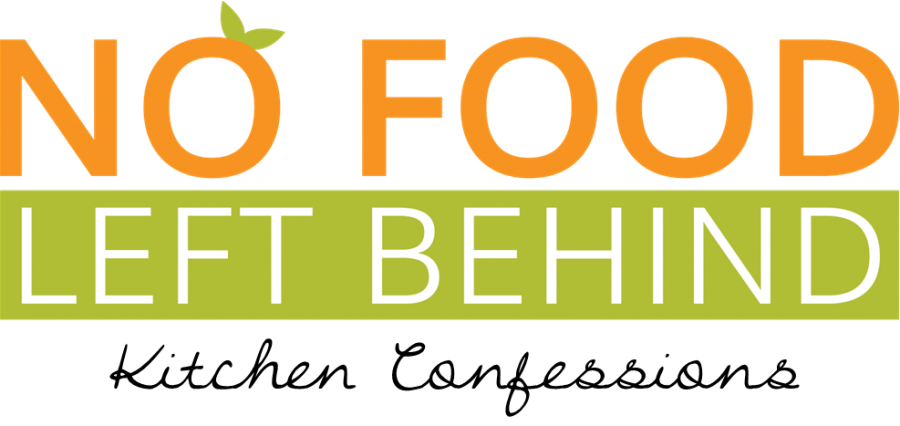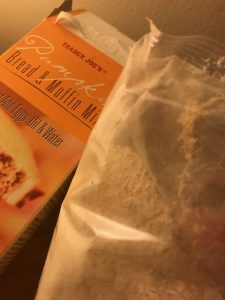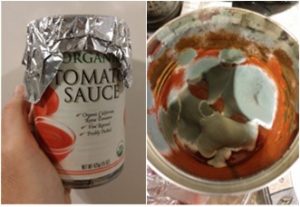(updated Nov. 2025)
Greetings, Conscientious Food Consumers!
It’s time to “talk turkey” (even for vegans and vegetarians) about less wasted food.
Imagine sitting at bountiful Thanksgiving dinner table. You’ve just filled your plate with an appetizing assortment of your favorite dishes. Suddenly, someone comes over and scoops up a quarter of what’s on your plate, takes it over to the compost bin and dumps it.
Shocking, right? But it’s a good metaphor for how the average American family wastes 25-30 percent of its food purchases every year, at a cost of $2,900! What’s also wasted are the Earth’s precious resources — water, energy and soil — as well as the human labor that went into that food.
When this was first written, in November 2020, everyone was preparing for their first pandemic Thanksgiving. Years later, those cautious and budget-conserving adaptations remain entirely relevant today. Read on, Conscientious Food Consumers!
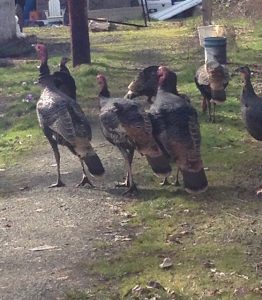
Let’s talk live turkeys first….
Wandering wild turkeys are not an uncommon sight in urban areas of Oregon, including certain neighborhoods of Corvallis and Philomath. Both comical and majestic, these birds are generally tolerated by their fellow urban dwellers. But the state Department of Fish and Wildlife stresses: Don’t feed the turkeys! If your neighborhood flock (and their you-know-what) becomes too big of a nuisance, you might want to apply for an ODFW “turkey hazing” permit. (No hassling the turkeys without one!)
TALKING TURKEY: Planning and Shopping Your Meal
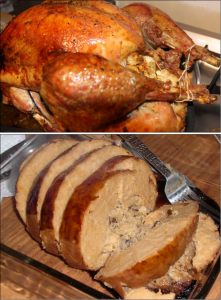
So let’s “talk turkey” about Turkey Day logistics. That includes vegans and vegetarians who don’t eat actual turkeys!
- Whether you’re planning for a large-ish or more intimate gathering at your Thanksgiving table this year, you’re going to need the Guestimator to help you plan and shop for just the right quantities (with an option for leftovers, of course!); SO
- Your holiday Meal Plan and Shopping List are key tools. Hey! There’s an app for that! COINCIDENTALLY,
- Your holiday meal planning and shopping STARTS in your own pantry and freezer (after consulting your handy Freezer Inventory).
With our Kitchen Confessions blog, we hope to familiarize you with a variety of tools and Smart Strategies (such those highlighted above) to help you in these tasks. In addition to those at our own website, we love turning folks onto resources like these for Thanksgiving (and year-round) meal strategizing:
- Make your own turkey bone broth and/or stock: Don’t let these nourishing and valuable parts of the turkey go to waste!
- StillTasty.com, “Your Ultimate Shelf Life Guide,” for getting clear before Thanksgiving about how to handle those leftover cooked turkey pieces, that leftover gravy and those cooked giblets your kid doesn’t like;
- First Alternative Natural Foods Co-op’s “Budget Bites” – budget-minded meal plans for a week’s worth of meals for two adults;
- BigOven.com, also has meal planning and shopping lists (and tons of recipes). Upload your own recipes! (They could use a lot more vegan/vegetarian ones!)
TALKING TURKEY: Caring and Sharing
Sharing food with others is an important holiday tradition, and it also happens to be the second-best prevention strategy on the EPA’s Wasted Food Scale. Turkey donations, in particular, are sought this year by the South Corvallis Food Bank, one of 68 local organizations in an amazing food rescue and redistribution hub managed by Linn Benton Food Share. (Scroll down for the complete list.) Food Share coordinates with non profit agencies, emergency food box pantries, gleaning groups, OSU dining facilities, public meal sites, AND legions of volunteers to gather and distribute over 4.6 million pounds of food annually. And every dollar donated to Food Share generates five meals for people in need!
In our next edition of Kitchen Confessions: Honoring this land and its Native peoples this Thanksgiving; Getting ready for loving those Thanksgiving leftovers!
